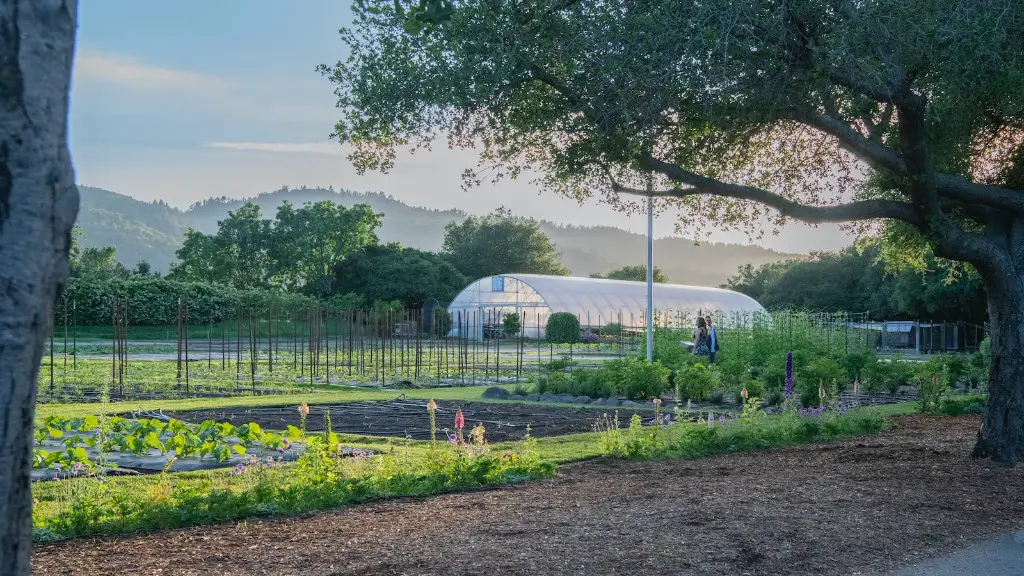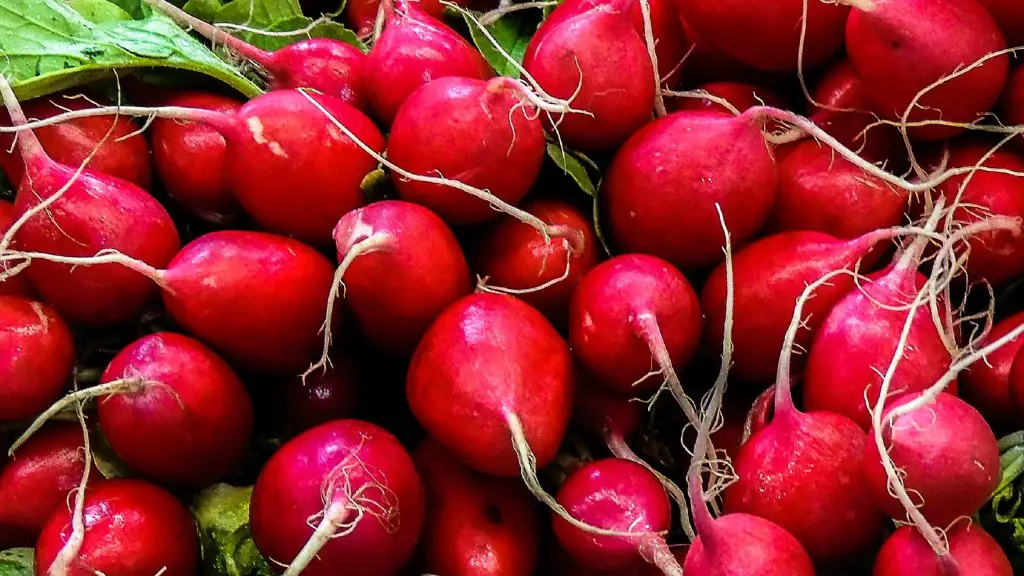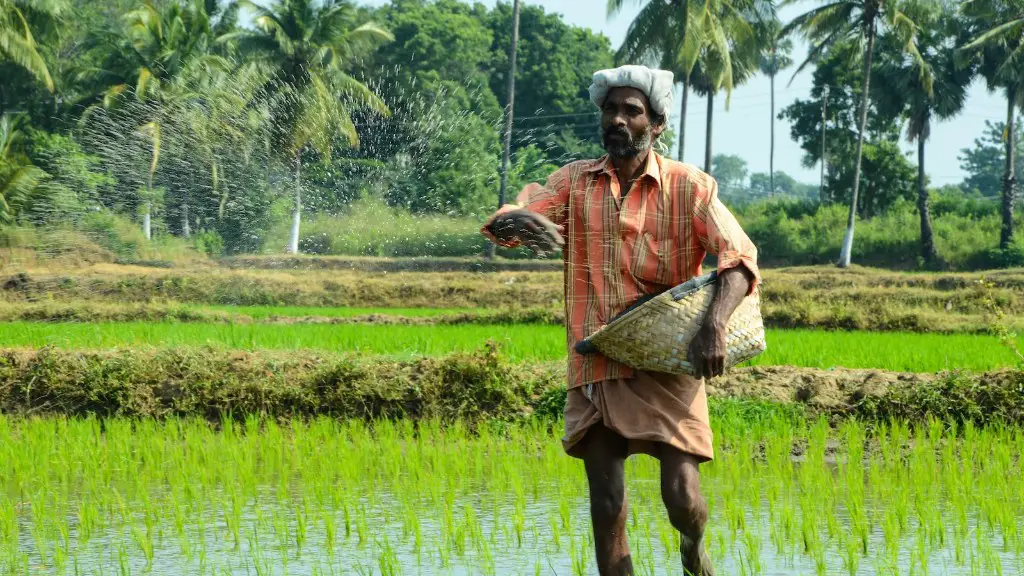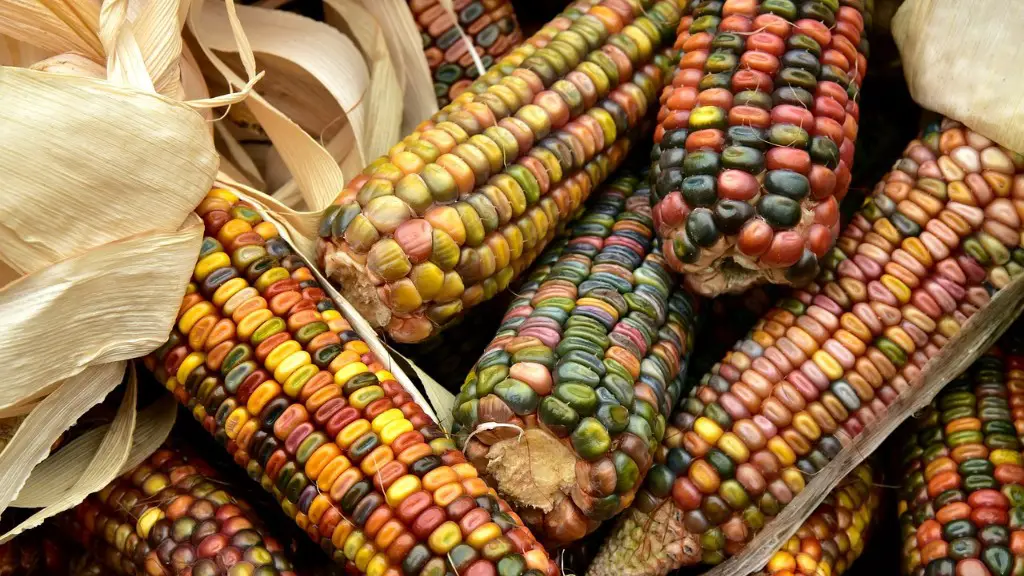Agriculture is the backbone of society, providing food and vital resources for most of the world’s population. Despite its importance, there is still much room for improvement in terms of growing crops, harvesting and distributing food. Here I’ll explain some of the most effective and innovative ways in which agriculture can be improved.
The first step to improving agriculture is to use modern technology to enhance productivity. Adopting modern farming techniques, such as precision agriculture, allows farmers to identify and adjust their crop production according to changes in environmental conditions. This can be done using data gathered by sensors, drones, or even satellite imaging. This leads to higher yields and a more efficient use of resources.
It is also essential to implement sustainable agricultural practices in order to ensure that crops can continue to be produced with minimal environmental impact. This includes using sustainable irrigation systems, using organic fertilisers and pest control as well as minimising soil erosion. These measures can help to reduce water usage, reduce the need for chemicals and improve soil fertility.
In addition, it is important to improve access to technology and knowledge among farmers. Advances in technology, such as the use of mobile phones, can enable farmers to access better information and advice on how to grow the best crops. As well as this, the internet can be used to provide advice on the latest crop trends, market variations and potential new products.
Furthermore, agricultural communities around the world should be supported and encouraged to experiment with different production techniques. This could involve introducing new varieties of crops or introducing unique farming systems. By doing this, farmers may be able to come up with new ways to improve production and make the most of their land.
Finally, it is essential to ensure that agricultural infrastructure is secure and affordable. This can be achieved by investing in better roads, power grids and irrigation systems. This will help to ensure that farmers can access the resources they need to run their farms more efficiently, whilst also assisting them in getting goods to market.
Global Cooperation
Global cooperation can also play a key role in improving agricultural production. Public-private partnerships can help to finance and share knowledge, research and resources to address shared challenges such as food insecurity, climate change and water scarcity.
This could also involve governments investing in research into new agricultural techniques, such as the use of genetically modified organisms (GMOs) or the development of novel fertilisers. Such research could be used to address global challenges, whilst also helping to improve local agriculture.
However, it is important to recognise that when it comes to the global food system, there is no ‘one size fits all’ solution. It is essential for governments and international organisations to work together to share resources and expertise, whilst helping to provide support for local communities.
Finally, global cooperation also involves the exchange of agricultural goods and services. This could take the form of trading food crops, providing assistance in areas of agricultural know-how and setting up alliances to share technology and resources.
Education and Training
Another major factor in improving agriculture is to focus on education and training. By providing agricultural training and education, farmers can become more efficient and develop new techniques to increase production and reduce costs.
This could also help to ensure that younger generations of farmers have access to the skills and resources they need to become successful. This could include learning how to use modern technologies, understanding market trends, and understanding the science behind the farming process.
As well as this, education should also be used to raise awareness on the value and importance of sustainable agricultural practices. This may involve providing knowledge on how to reduce water use, minimise soil erosion or use organic fertilizers and pest control.
Finally, it is also important to ensure that farmers have access to quality data and advice. This could mean providing access to training, mentoring and support services, as well as access to market information. This can help to empower farmers to make informed decisions about their operations, allowing them to become more resilient and productive.
Government Support
Government policies can also play a key role in improving agriculture. This can include providing access to credit and subsidising inputs and equipment, as well as providing incentives to increase productivity or improve environment sustainability.
It is also important for governments to invest in rural infrastructure. This could take the form of better roads, improved electricity networks or investment in information technology. This can help to make it easier for farmers to access resources and for goods to reach local markets.
Furthermore, governments can also provide assistance to farmers directly. This could come in the form of direct payments if crop prices are low, or providing assistance for farmers transitioning to more sustainable production systems. By helping to improve the livelihoods of farmers and supporting them to make the most of their land, governments can help to create a better future for agricultural production.
Innovations and New Technologies
In addition to the above, there are also a range of innovative and new technologies that are being developed which could significantly improve agricultural production. These range from using automated systems to improve irrigation and harvesting, to using data analysis and AI to better predict crop production and identify potential yields.
The use of drones, in particular, can be especially effective as these can quickly be used to monitor crops, identify pests and diseases and check soil properties. As well as this, new biotechnologies can also be used to develop disease and drought-resistant crops, reduce fertilizer use, and more efficiently utilise water.
However, it is important to note that in order for these technologies to be used widely, intensive training and education is required. Farmers must be taught how to use the latest technologies, as well as understand how to make smart decisions based on the data they gather.
Finally, there is also the potential for new advances in agriculture to be tied to technological solutions such as blockchain. This could help to make the food supply chain safer and more traceable, whilst also helping to provide better standards of food safety and reduce the risk of fraud.
Conclusion
In conclusion, there are many ways in which agriculture can be improved. By using modern technologies, implementing sustainable agricultural practices, improving access to technology and knowledge, and ensuring access to quality data and advice, agriculture can be improved and become more productive and resilient.
This also goes hand in hand with global cooperation and government policies, which can help to finance and share expertise, promote sustainable practices, and provide support for local communities. Finally, the use of innovative and new technologies cannot be overlooked as this could bring about huge advances in agricultural production.





